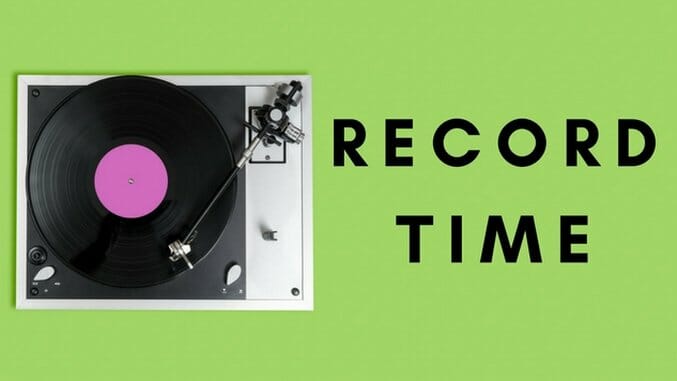Record Time: New & Notable Vinyl Releases (May 2019)

Record Time is Paste’s monthly column that takes a glimpse into the wide array of new vinyl releases that are currently flooding record stores around the world. Rather than run down every fresh bit of wax in the marketplace, we’ll home in on special editions, reissues and unusual titles that come across our desk with an interest in discussing both the music and how it is pressed and presented. This month that includes a trio of reissues from Blue Note Records, a full-album cover of a dream-pop and some truly scary noises from a band with a controversial name.

Traffic: The Studio Albums: 1967-1974 (Island/UMC)
By all practical measures, Traffic should not be appreciated as much as they are today. While their albums sold remarkably well for a jazz-influenced prog-pop band in the ‘70s, with three gold records and one platinum record (1971’s The Low Spark of High Heeled Boys) here in the U.S., and were a reliable concert draw in their time, they don’t have a presence on modern classic rock radio (still the driving force behind the legacy of their contemporaries) and haven’t been lured into the nostalgia touring circuit. All that makes the arrival of a boxed set pulling together new pressings of their studio output from their initial seven year run something of a surprise, but a very welcome one all the same. Universal and Island did a mostly great job presenting the six full-lengths by this group, re-creating the U.K. pressings down to the correct era labels, gatefolds and the optical illusion die-cut covers for High Heeled and 1973’s Shoot Out at the Fantasy Factory. They’ve also tucked a poster into each album recreating promotional material of the time. And the remastering work is cloudless and dynamic, particularly on the more rare early material by the group when they leaned heavily psychedelic and toyed with bubblegum.
I can understand the decision to skip over the three live albums the band produced during this time as that would have ballooned the costs of each set considerably. But what is sorely missing from this set is a booklet or liner notes of some sort that might help the curious buyer understand the history of this group, which included a break up in ‘68 and various lineups that included celebrated singer-songwriter Dave Mason shrunk to a trio at one point and ballooned to an octet on stage. Again, my guess is that it was a matter of cost that precluded Island from trying to make the historical case for Traffic within the walls of this boxed set; the logic likely being that if you’re spending the cash on this, you must already be on board with the band. There’s some sense to that, I admit, because, again, this isn’t a band with a popular greatest hits album still in circulation. The historians of British prog and rock are the ones looking to A/B test the intricacies of the 11 minute long “Dream Gerrard” from their 1974 album When the Eagle Flies or arguing that their original, snaky 1968 version of “Feelin’ Alright?,” the song popularized by Joe Cocker just a year later, is the superior recording (a sentiment I would agree with).

Nitro: O.F.R. (Real Gone)
All I really need to tell you about metal band Nitro is that their guitarist—the wonderfully named Michael Angelo—once wielded an axe onstage that had four, count ‘em, four necks, and that in the liner notes for their debut album, they featured a screed letting the world know that this record featured “absolutely no harmonizers, pitch transposers, sampling, or VSOing…no tricks, no bullshit.” Oh, and the title of this 1989 LP stands for “Out-Fucking-Rageous.” Everything about this borders on parody, but, friends, they were dead serious about trying to be the next great glam metal band of the late ‘80s. Things didn’t work out quite that well, but their music remains a heavily-compressed and wailing tribute to a sound that was roughly pushed aside by the ascendance of grunge and hip-hop in the early ‘90s. And honestly, they might only have themselves to blame. Their core strengths (Angelo’s fleet-fingered solos and the piercing wail of frontman Jim Gillette) had a surprisingly hard time co-existing on this record. The band needed one of them to pump the brakes here and there. Because, some 30 years later, even though they succeeded in sonically evoking the title of the record, the music is exhausting to listen to.
-

-

-

-

-

-

-

-

-

-

-

-

-

-

-

-

-

-

-

-

-

-

-

-

-

-

-

-

-

-

-

-

-

-

-

-

-

-

-

-













































